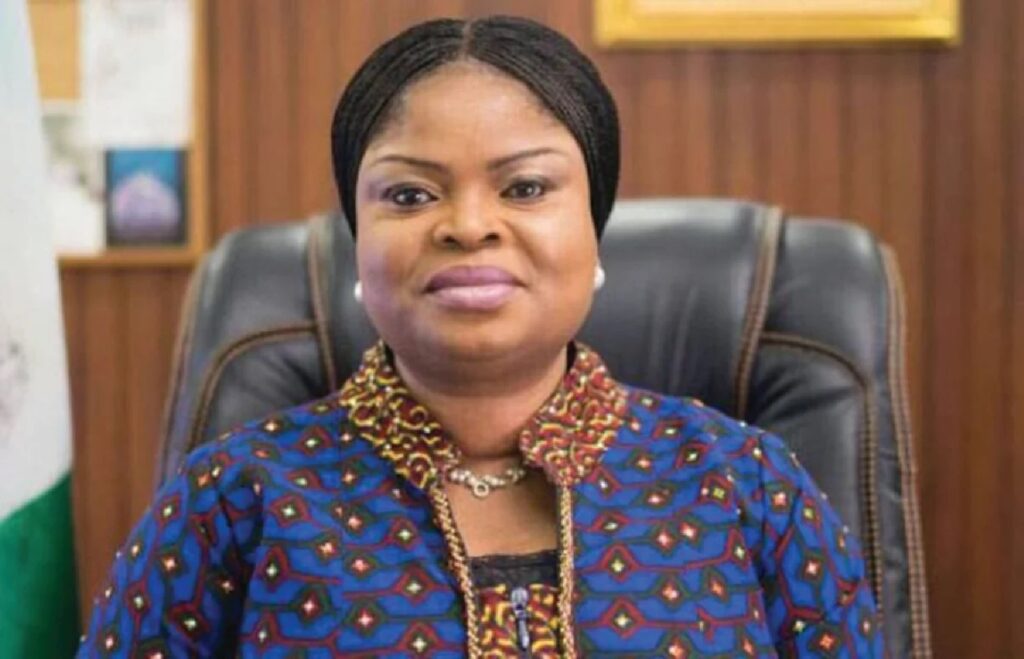From Juliana Taiwo-Obalonye, Abuja
Senior Special Assistant to the President on Sustainable Development Goals (SDGs), Adejoke Orelope-Adefulire, has revealed that 17 states are yet to domesticate the SDGs into their governance frameworks.
“There are 20 states that have domesticated and integrated SDG targets and indicators into their plans,” Orelope-Adefulire explained at a critical Roundtable Dialogue with SDGs Focal Persons
in Abuja. “But we still have 17 states that are yet to bring forward their requests for domestication and integration. This is a national agenda, not a state or federal government agenda. It requires all tiers of government working in unison if we are to achieve the Sustainable Development Goals.”
She emphasised the urgent need for these states to get on board. “This meeting is not just a dialogue, but a call to action for the remaining states. We encourage them to domesticate the SDGs so that budgets at all levels reflect the national development agenda. When you spend 10 Naira, we want to know what portion goes directly to No Poverty or Zero Hunger, or to education, healthcare and job creation at the grassroots.”
Orelope-Adefulire stressed the importance of integration and accountability: “Development is bottom-up. Local governments have access to increased federal allocations, but the critical question is: Are these funds being used effectively? The President of the Council of Local Governments must ensure these allocations translate to tangible community benefits.”
Asked about how progress is tracked, she outlined a multi-tiered approach: “We monitor through three main sources: the National Bureau of Statistics; focal persons and planning officers in each state; and Ministries, Departments, and Agencies (MDAs) at the national level. This triangulation ensures data reliability as we advance towards 2030.
Director-General for SDGs in Edo State, Julius Okunbor, described the roundtable as “an eye-opener.” He emphasized the misconception that funds primarily come from external donors, stating, “Many believe there’s a lot of money in the SDG office coffers. The truth is, we must work with what we have available, minimize leakages, and manage budgets prudently. Borrowing excessively risks indebting us without real development gains.”
Okunbor also took pride in the progress Edo State has made: “Governor Monday Okpebholo revived the SDGs which were dormant for about seven years. It’s now my duty to intensify advocacy and awareness at the local government level—to help communities understand the SDGs are not donor gimmicks but a framework for inclusive development.”
Special Advisor on Basic and Secondary Education in Abia, Kenechukwu Nwosu, on his part, assures that the State’s success is emerging as a national exemplar with strategic integration of the SDGs into all sectors. praised the state’s broad initiatives: “From road reconstruction, urban mass transit, to healthcare, agriculture, and water sanitation, Abia is accelerating sustainable growth. The partnerships and investments we have made are delivering results.”
He elaborated on local government collaboration: “We have strong ‘handshakes’ with municipal governments and local chieftains. Everything—from teacher recruitment to school security—requires effective consultation with local government. Social mobilization and grassroots engagement are critical to our success.”
Regarding funding, Nwosu added, “We conduct rigorous risk-based assessments to ensure funds add real value to projects. Abia State’s financial engineering means we meet counterpart funding without resorting to loans.”


